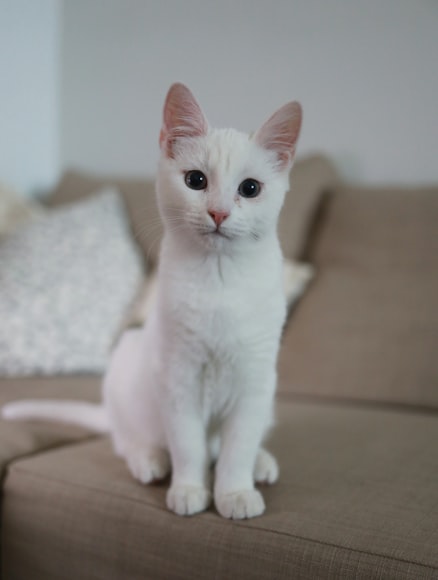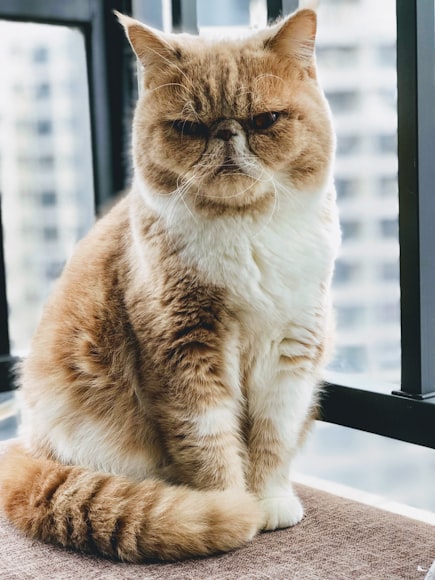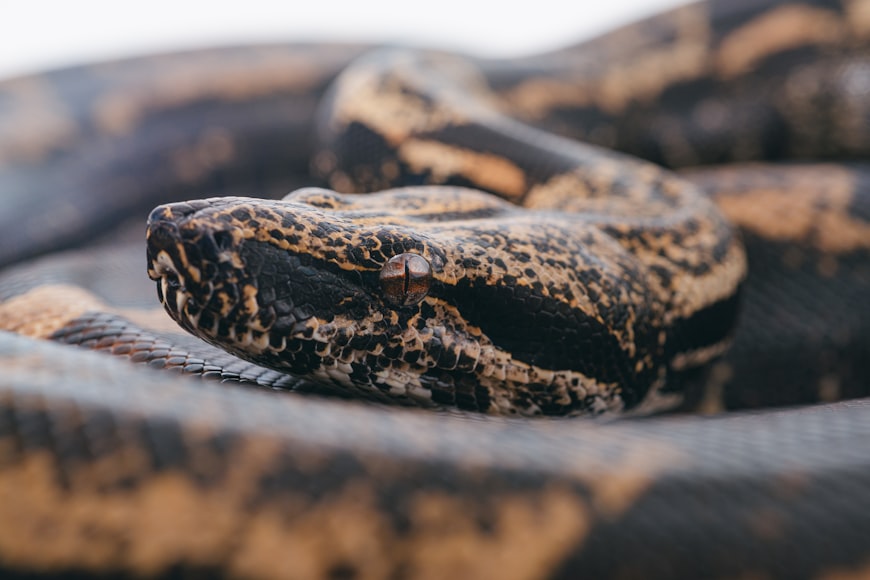Cat Eye Care Tips Outline

Introduction:
- Importance of eye health in cats
- Common eye issues and their impact on cats’ well-being
Regular Veterinary Check-ups:
- Frequency and what to expect during check-ups
- Importance of early detection and treatment
Daily Care at Home:
- Cleaning:
- Wipe around eyes with a soft, damp cloth
- Use specific eye drops or solution as recommended by your veterinarian
- Observation:
- Watch for signs of discharge, redness, squinting, or other abnormalities
- Monitor your cat’s behavior for any changes that may indicate eye discomfort
Environmental Factors:
- Sunlight:
- Protect cats from prolonged exposure to bright sunlight
- Provide shaded areas outdoors
- Irritants:
- Keep cats away from smoke, dust, and other irritants
- Use air purifiers if necessary
- Trauma:
- Prevent cats from engaging in activities that increase the risk of eye injury
Common Eye Conditions:
- Conjunctivitis (Pink Eye):
- Symptoms, causes, and treatment options
- Corneal Ulcers:
- Risk factors, signs, and management
- Cataracts:
- Causes, signs, and treatment considerations
- Retinal Conditions:
- Age-related changes and potential issues
Medication and Treatment:
- Types of eye medications (e.g., eye drops, ointments)
- Proper administration of medications
- Importance of following veterinarian’s instructions for dosage and schedule
Emergency Situations:
- Signs of an eye emergency (e.g., severe pain, sudden vision loss)
- Steps to take if an emergency occurs (e.g., contact a veterinarian immediately)
Conclusion:
- Summarize the key eye care tips for cats
- Emphasize the importance of regular check-ups and prompt attention to any eye issues
- Encourage cat owners to make eye care a priority for their beloved pets
Importance of Eye Care

As responsible cat owners, ensuring the health and well-being of our furry companions extends beyond just providing food and shelter. Regular eye care is essential for maintaining the vision and overall health of our beloved cats. Here’s why:
Importance of Eye Care
Protection from Infections and Diseases:
Cats’ eyes are susceptible to various infections and diseases, such as conjunctivitis, corneal ulcers, and glaucoma. Regular eye examinations allow veterinarians to detect and treat these conditions promptly, preventing them from progressing and causing permanent damage to the eyes.
Maintenance of Vision Health:
Proper eye care is crucial for preserving cats’ vision. Chronic eye conditions, if left untreated, can lead to partial or even complete vision loss. Eye examinations help identify any underlying issues that could affect their ability to see clearly.
Eye Care Tips
-
Regular Veterinary Check-ups:
Regular veterinary check-ups, including comprehensive eye exams, are essential for early detection and treatment of eye problems. -
Watch for Symptoms of Eye Issues:
Be vigilant for any changes in your cat’s eyes, such as redness, squinting, tearing, or discharge. These symptoms could indicate an underlying eye condition that requires attention. -
Clean Your Cat’s Eyes Regularly:
Use a soft, damp cloth to gently clean the corners of your cat’s eyes to remove any discharge or debris. Clean the cloth after each use to prevent the spread of infection. -
Avoid Using Human Eye Drops:
Human eye drops can be toxic to cats. Always consult a veterinarian before using any eye drops on your cat. -
Protect from UV Rays:
Long-term exposure to UV rays can increase the risk of developing eye problems in cats. Provide shaded areas for your cat to retreat to outdoors. -
Avoid Irritants:
Keep your cat away from smoke, harsh chemicals, and other irritants that can cause eye irritation. -
Consider Nutritional Supplements:
Certain supplements, such as lutein and zeaxanthin, may support eye health in cats. Consult your veterinarian before introducing any supplements into your cat’s diet.
Conclusion
Eye care is an integral part of maintaining the overall health and well-being of your cat. By following these simple tips, you can help protect your feline companion from eye infections and diseases, ensuring they enjoy clear and healthy vision throughout their lives. Remember, regular veterinary check-ups and prompt treatment of any eye issues are essential for preserving your cat’s precious gift of sight.
Daily Eye Check

As cat owners, it’s crucial to maintain the health of our feline companions, and this includes their precious eyes. Regular eye checks are an important part of their daily care routine, allowing us to detect any potential issues early on. Here are some essential eye care tips to help you keep your cat’s peepers bright and healthy:
Inspect for Discharge, Redness, Swelling:
- Examine your cat’s eyes daily for any abnormal discharge, such as clear, yellow, or green mucus, which can indicate conjunctivitis or other infections.
- Look for redness or swelling around the eye, as this could be a sign of inflammation or allergies.
- Pay attention to the shape of the eye; bulging or sunken eyes can indicate underlying medical conditions.
Check for Corneal Ulcers or Scratches:
- Corneal ulcers or scratches can cause pain and impaired vision in cats.
- Examine the clear, dome-shaped area of the eye (cornea) for any cuts, scratches, or cloudy patches.
- If you suspect a corneal ulcer, seek veterinary attention immediately, as it requires prompt treatment.
Additional Eye Care Tips:
- Wipe away any discharge or debris around the eyes with a clean, damp cloth.
- Avoid using harsh chemicals or soaps around your cat’s eyes.
- Keep your cat indoors to reduce the risk of corneal scratches or trauma.
- Provide a balanced diet and clean, fresh water for your cat’s overall health and well-being.
- Schedule regular veterinary checkups to ensure your cat’s eyes are examined by a professional.
Remember, early detection and treatment of eye problems are essential for preserving your cat’s vision and overall health. By incorporating daily eye checks into your cat’s care routine, you can help ensure their bright and healthy eyes for years to come.
Cleaning

Maintaining the health of your cat’s eyes is crucial for their overall well-being. Regular cleaning can prevent infections, remove debris, and ensure clear vision. Here are some tips for cleaning your cat’s eyes:
Gently Wipe with a Damp Cloth or Cotton Ball:
- Use a soft, damp cloth or cotton ball soaked in warm water.
- Gently wipe away any discharge, debris, or crust around the eyes.
- Avoid using harsh chemicals or detergents that could irritate your cat’s eyes.
Use Saline Solution or Cat Eye Drops:
- For more stubborn discharge, use a sterile saline solution or cat eye drops.
- Apply a few drops to the affected eye and gently wipe away the discharge.
- Saline solution helps to flush out debris and soothe irritated eyes.
Frequency:
- The frequency of eye cleaning depends on your cat’s individual needs.
- Cats with watery or crusty eyes may require daily cleaning.
- Cats with healthy eyes may only need cleaning once or twice a week.
Tips:
- Be gentle and patient when cleaning your cat’s eyes.
- Avoid touching the eyeball directly.
- If your cat resists eye cleaning, try distracting them with a treat or toy.
- If your cat’s eyes are red, swollen, or discharging excessively, consult your veterinarian immediately.
By following these tips, you can help keep your cat’s eyes clean, healthy, and free from irritation. Regular eye care is an important part of responsible pet ownership and contributes to your cat’s overall well-being.
Preventing Infections

Eyes are one of the most important senses for cats, so it’s essential to keep them healthy and free of infections. Here are some tips on how to prevent eye infections in cats:
-
Keep eyes clean. This is the best way to prevent eye infections. Use a clean, damp cloth to gently wipe away any dirt or discharge from your cat’s eyes. Be sure to use a different cloth for each eye to avoid spreading infection.
-
Avoid contact with toxic substances. Certain chemicals and toxins can irritate your cat’s eyes and make them more susceptible to infection. Keep your cat away from household cleaners, pesticides, and other potentially harmful substances.
-
Vaccinate against common feline eye diseases. There are several vaccines available that can protect your cat from common eye diseases, such as feline herpesvirus and feline calicivirus. Talk to your veterinarian about which vaccines are right for your cat.
Additional tips:
-
Check your cat’s eyes regularly. Look for any signs of redness, swelling, or discharge. If you notice any changes, contact your veterinarian right away.
-
Keep your cat’s environment clean. This will help to reduce the risk of your cat coming into contact with bacteria and viruses that can cause eye infections.
-
Don’t share towels or bedding with your cat. This can spread bacteria and viruses from your cat to you or other pets.
-
If your cat has an eye infection, follow your veterinarian’s instructions carefully. This will help to ensure that your cat gets the best possible care and that the infection clears up quickly.
By following these tips, you can help to keep your cat’s eyes healthy and free of infections.
Regular Veterinary Exams
As a responsible cat owner, ensuring the well-being of your feline companion extends to protecting their precious eyesight. Regular veterinary exams play a pivotal role in maintaining the health of your cat’s eyes and preventing potential problems.
Importance of Regular Veterinary Exams
-
Early Detection and Treatment of Eye Issues: Veterinary exams provide an opportunity for your veterinarian to examine your cat’s eyes thoroughly, detecting any abnormalities or underlying eye conditions that may not be immediately apparent to you. By identifying issues early on, your veterinarian can initiate timely treatment, preventing further complications.
-
Glaucoma, Cataracts, and Eye Infections: These are common eye conditions in cats that can lead to significant vision impairment and even blindness if left untreated. Regular veterinary exams allow for the early diagnosis and management of these conditions, preserving your cat’s eye health.
Frequency of Exams
The frequency of veterinary exams for eye care varies depending on your cat’s age and overall health. Generally, it is recommended to:
- Kittens and Young Cats: Examined every 6-12 months
- Adult Cats: Examined every 12-18 months
- Senior Cats: Examined every 6-12 months
What to Expect During an Exam
During a veterinary eye exam, your veterinarian will typically perform the following:
- Visual Acuity Assessment: Using a simple test, your veterinarian will determine if your cat has any vision problems.
- External Examination: Your veterinarian will examine your cat’s eyelids, eyelashes, and the surrounding skin for any abnormalities.
- Ophthalmoscopy: Using a special instrument, your veterinarian will look inside your cat’s eyes to examine the cornea, lens, retina, and optic nerve.
- Tonometry (Measuring Eye Pressure): This test is used to detect glaucoma, a condition characterized by increased pressure within the eye.
Conclusion
Regular veterinary exams are an essential component of comprehensive cat eye care. By providing early detection and treatment of eye issues, you can help ensure your feline friend enjoys a lifetime of optimal visual health. Schedule regular veterinary exams for your cat to protect their precious eyesight and keep their vision bright and clear.
Environmental Considerations
Maintaining your feline friend’s eye health extends beyond routine check-ups and treatments. Environmental factors play a crucial role in safeguarding their precious vision. Here are essential tips to protect your cat’s eyes from potential threats in their surroundings:
Protect from Harmful UV Rays
Just like humans, cats’ eyes are vulnerable to the damaging effects of ultraviolet (UV) radiation. Prolonged exposure to the sun’s UV rays can cause cataracts, a leading cause of blindness in cats.
- Limit outdoor time during peak UV hours: Avoid exposing your cat to direct sunlight between 10 am and 4 pm, when UV rays are strongest.
- Provide shaded areas: Create shady spots in your backyard or balcony where your cat can enjoy the outdoors without excessive sun exposure.
- Invest in UV-blocking sunglasses: Consider purchasing sunglasses specifically designed for cats to protect their eyes from UV damage.
Provide a Clean and Well-Lit Environment
A clean and well-lit environment is vital for your cat’s eye health.
- Regularly clean litter boxes: Dirty litter boxes can contain bacteria and allergens that can irritate your cat’s eyes.
- Dust and vacuum frequently: Remove dust and other allergens that can accumulate on surfaces and irritate your cat’s eyes.
- Provide adequate lighting: Ensure your home is well-lit to prevent your cat from straining its eyes in dim conditions.
By implementing these environmental considerations, you can create a safe and supportive environment that helps protect your cat’s precious eyesight and maintain their overall well-being.
Diet and Nutrition
As a responsible pet owner, ensuring your cat’s eye health is crucial. Proper nutrition plays a significant role in maintaining healthy eyes and preventing common eye problems. Here are some vital dietary considerations for optimal cat eye care:
Balanced Diet:
Provide a balanced diet that meets your cat’s nutritional needs. High-quality cat food should contain essential vitamins and minerals for overall health, including eye health. Focus on food sources rich in:
- Vitamin A: Found in liver, fish, and dairy products, vitamin A is vital for maintaining normal vision and preventing dry eye syndrome.
- Vitamin C: Although cats produce their own vitamin C, supplementing their diet can provide additional support for eye health.
- Vitamin E: An antioxidant found in leafy greens, nuts, and seeds, vitamin E protects cells from damage caused by free radicals.
Supplements:
In addition to a balanced diet, consider supplementing your cat’s nutrition to support their eye health. Consult with your veterinarian to determine the appropriate supplements for your cat’s individual needs. Common supplements include:
- Taurine: An amino acid found in meat, taurine is essential for maintaining healthy retinas.
- Antioxidants: Antioxidants, such as lutein and zeaxanthin, protect the eyes from damage caused by UV light and free radicals.
- Omega-3 Fatty Acids: Found in fish oil, omega-3 fatty acids support overall eye health and can reduce inflammation.
Additional Tips:
- Keep your cat well hydrated: Provide plenty of fresh water to help flush out toxins and support eye health.
- Regular veterinary check-ups: Take your cat for regular eye exams to detect and treat any potential eye problems early on.
- Protect from UV exposure: Cats can experience sun damage to their eyes, so provide shaded areas for them to enjoy the outdoors.
By following these dietary tips, you can help ensure that your cat’s eyes stay healthy and bright throughout their life. Remember to consult with your veterinarian for personalized advice and to determine the best nutrition plan for your feline companion.
Signs of Eye Issues
Our feline companions rely heavily on their eyes for navigating their environment and interacting with the world around them. Therefore, it’s crucial for cat owners to be vigilant about their pets’ eye health. Knowing the signs of potential eye issues can help you seek veterinary attention promptly and prevent serious complications.
Key Signs of Eye Problems in Cats:
1. Squinting and Excessive Tearing:
Squinting is a common sign that your cat may be experiencing discomfort or pain in their eyes. Excessive tearing can indicate inflammation or irritation.
2. Cloudy Eyes, Redness, or Swelling:
Healthy cat eyes should be clear and bright. Cloudiness, redness, or swelling can be indicative of infections, uveitis (inflammation of the eye), or other eye disorders.
3. Pawing at the Eyes or Rubbing the Face:
Cats with eye problems will often paw at their eyes or rub their faces on surfaces in an attempt to relieve discomfort or remove foreign objects.
Additional Warning Signs:
- Discharge from the eyes (clear, yellow, or green)
- Changes in pupil size or shape
- Head tilting
- Loss of appetite
- Lethargia
Importance of Prompt Veterinary Attention:
If you notice any of these signs, it’s essential to schedule a veterinary appointment as soon as possible. Eye issues in cats can progress rapidly and lead to severe complications, including vision loss.
Prevention and Home Care:
While it’s not always possible to prevent eye problems in cats, there are steps you can take to minimize the risk:
- Provide regular eye exams by a veterinarian.
- Keep your cat’s environment clean and free of potential irritants.
- Avoid exposing your cat to excessive smoke or secondhand smoke.
- Trim your cat’s nails regularly to prevent them from scratching their eyes.
- Regularly check your cat’s eyes for any changes or discharge.
By being aware of the signs of eye issues and taking proactive measures, you can help keep your feline friend’s eyes healthy and bright for years to come. Remember, early detection and treatment are key to preserving your cat’s vision and overall well-being.




















